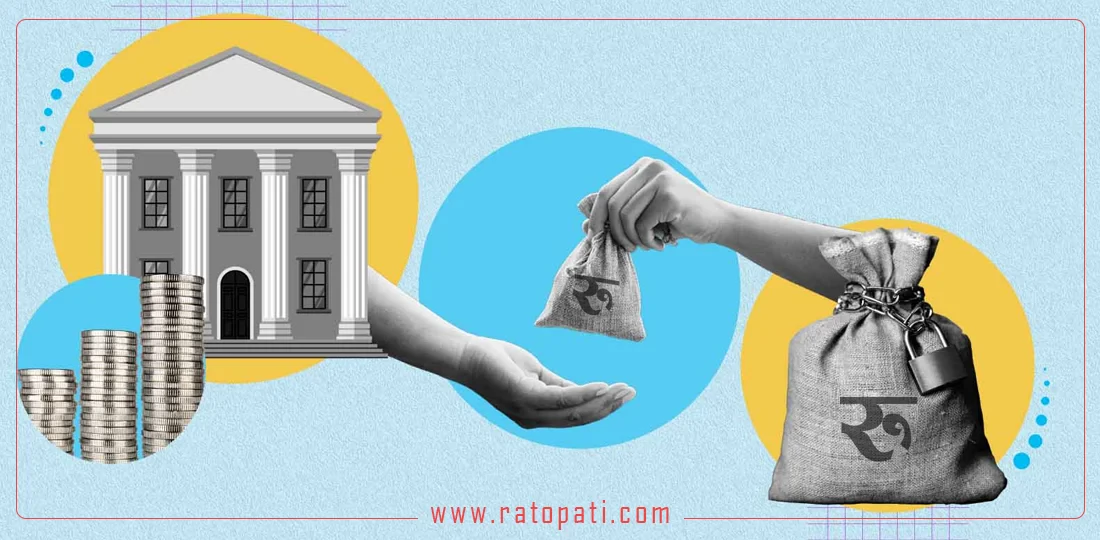Government initiates startup loans program to boost business growth

KATHMANDU: The government is extending support to startup businesses, which refer to newly established companies or ventures, typically in their early stages of development. These businesses are often characterized by innovative ideas, disruptive technologies, or unique approaches to solving market problems.
Additionally, businesses operating under the latest systems to provide services and products can also be categorized as startups.
Startup businesses usually encounter challenges in their initial years.
However, as they gain popularity among customers, these businesses have high chances of success. Despite their potential, startups often face various challenges in collecting investment and commencing their journey.
Recently, on 19th Magh 2080, the Industrial Enterprise Development Institute (IEDI) announced its initiative to provide loans for startup businesses. Those interested in applying for these loans should operate within the 16 startup business sectors classified by the institute and can submit their applications within 21 days.
The sectors eligible for startup business loans include:
Agriculture and Livestock
Forest, Tourism promotion, entertainment, and hospitality
Science, Technology, Information, and Communication
Human health service
Education and pedagogical activities
Easy and secure transport service
Automobile
Traditional technology
Production and service enhancement
Mining and Mineral Exploration and Development
Domestic or daily livelihood
Production and processing of food products
Waste management and environment protection
Disaster management
Renewable energies
Climate Change
In the context of Nepal, established businesses in the global arena could also be considered startups. Services and products offered by these businesses could bring new experiences to our country. Companies like Amazon, Alibaba, Apple, Microsoft, Meta, Facebook, Google, Tesla, and cryptocurrency were once startups and are now vital to the global economy.
Similarly, in Nepal, businesses like E-sewa, Pathao, Foodmandu, Daraz, Namaste Pay, and Nepali Patro were once startups. Nepal Warehouse Company, Muktinath Agricultural Company, Matka Chiya, Banana House, and Mato Brand also started as startups. Advancements in technology and innovation have provided fertile ground for these startups to grow into global-scale enterprises.
Companies like E-sewa and Daraz, which began with minimum investment, now conduct transactions worth billions of rupees, providing employment opportunities and contributing significantly to government revenue. This serves as evidence that startups have the potential to thrive in our country in the future.
s per the National Startup Enterprise Policy (draft), businesses operating with new and innovative thinking, capable of growth, are eligible to be termed as startup businesses.
These businesses should meet certain criteria, including:
Annual income less than Rs 5 million
Less than 10 employees
Legal registration
Fixed capital (including home and land price) not exceeding Rs 20 million
Requirements for obtaining a loan under this policy include:
Paid-up capital between Rs 200,000 and Rs 1 million
Business registration not exceeding seven years from the date of application
Operating within the 16 specified categories
Annual transactions not exceeding Rs 20 million
Fixed capital less than Rs 20 million (excluding house and land)
PAN registration
Compliance with prevailing laws regarding registration and renewal
Tax clearance and audit
Employment of full-time workers
Not being blacklisted
To file an application:
Startup businesses seeking a loan ranging from minimum Rs 500,000 to Rs 2,500,000 can submit their applications by Falgun 10 at the Industrial Enterprise Development Institute (IEDI) Office in Tripureshwor, Kathmandu.
The sample application form can be obtained from the Startup Enterprises Credit Fund Working Procedures 2024, available online.
Merits of the loan include:
Facilitates business growth.
Offers loans at a low-interest rate.
No property required for mortgage agreement; the related project serves as collateral to secure the loan.
Installment payments commence only after two years of securing the loan.









Leave Comment